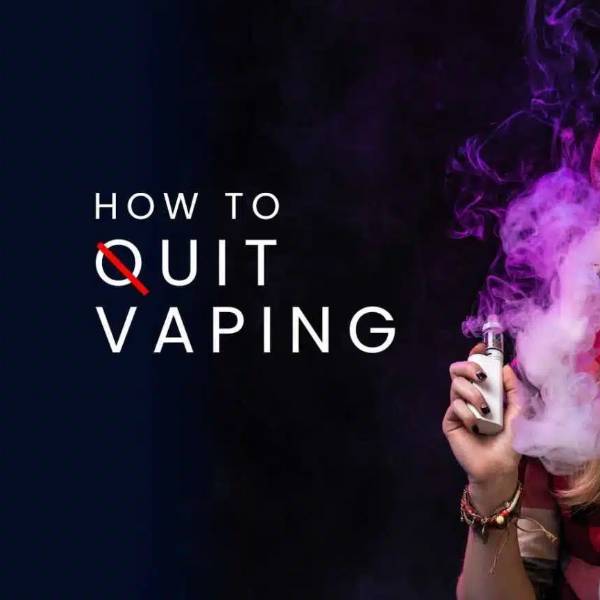Is It Hard to Quit Vaping?
Quitting vaping is a challenge many users face, especially as awareness grows about the potential health risks associated with e-cigarette use. Whether you’re a long-term vaper or someone who recently picked up the habit, the question “Is it hard to quit vaping?” is a common one.
The answer depends on several factors, including your level of nicotine dependence, personal motivation, and the support systems you have in place. In this article, we’ll explore the difficulties of quitting vaping, what to expect during the process, and how long it typically takes to overcome nicotine addiction.
Why Is It Hard to Quit Vaping?
Vaping is often perceived as a safer alternative to smoking, but it still delivers nicotine—a highly addictive substance. For many users, especially those who transitioned from cigarettes, vaping becomes a new form of nicotine dependence. The ease of use, discreet design, and appealing flavors of vape devices can make the habit even more ingrained.
Here are some reasons why quitting vaping can be difficult:
-
Nicotine Addiction: Nicotine stimulates the release of dopamine, a neurotransmitter associated with pleasure and reward. Over time, the brain begins to crave this sensation, making it harder to stop.
-
Behavioral Habits: Vaping often becomes part of a daily routine—after meals, during breaks, or when stressed. These behavioral triggers can make quitting feel like losing a coping mechanism.
-
Withdrawal Symptoms: When you stop vaping, your body may react with symptoms such as irritability, anxiety, difficulty concentrating, and strong cravings. These symptoms can be uncomfortable and lead to relapse if not managed properly.
How Long Does It Take to Quit Vaping?

The timeline for quitting vaping varies from person to person. However, most people begin to notice improvements within the first few weeks. Here’s a general breakdown of what to expect:
-
First 24–72 Hours: This is the most intense phase of nicotine withdrawal. Cravings are strong, and symptoms like headaches, mood swings, and restlessness are common.
-
First Week: Physical symptoms begin to subside, but psychological cravings may still be strong. This is a critical period where support and coping strategies are essential.
-
2–4 Weeks: Most physical withdrawal symptoms fade. Energy levels and lung function begin to improve. Cravings may still occur but are usually less intense.
-
1–3 Months: The risk of relapse decreases significantly. Many users report feeling more in control and experiencing better overall health.
For some, the process may take longer, especially if vaping was used as a long-term coping mechanism. The key is persistence and seeking support when needed.
Tips to Make Quitting Easier
If you’re trying to quit vaping, you’re not alone. Many people have successfully stopped using e-cigarettes by following these strategies:
-
Set a Quit Date: Choose a specific date to stop vaping and stick to it. This helps create a sense of commitment and urgency.
-
Identify Triggers: Keep track of when and why you vape. Is it stress? Boredom? Social situations? Understanding your triggers can help you develop healthier alternatives.
-
Use Nicotine Replacement Therapy (NRT): Products like nicotine gum, patches, or lozenges can help reduce withdrawal symptoms and cravings.
-
Seek Support: Talk to friends, family, or a healthcare professional. Joining a support group or using a quit-smoking app can also provide motivation and accountability.
-
Stay Active: Exercise can help reduce stress and improve your mood, making it easier to resist cravings.
-
Avoid Temptation: Remove vape devices, e-liquids, and other reminders from your home and workspace.
Is It Harder to Quit Vaping Than Smoking?
Some users find vaping harder to quit than smoking because of the convenience and constant availability of vape devices. Unlike cigarettes, which are often limited to specific times or places, vaping can be done discreetly almost anywhere. This makes the habit more deeply ingrained and harder to break.
However, the good news is that many of the same strategies used to quit smoking can also be applied to vaping. With the right mindset and support, it is entirely possible to quit successfully.
Final Thoughts
So, is it hard to quit vaping? Yes—it can be challenging, especially if you’ve been using it for a long time or rely on it to manage stress. But it’s not impossible. Thousands of people quit vaping every year, and with determination, support, and the right tools, you can too.
If you’re ready to quit vaping, start by setting a plan, reaching out for support, and taking it one day at a time. Your health, your wallet, and your future self will thank you.


